Etruscan Blood Read online
Page 17
***
Lucius had expected to feel exultant when the bridge was finished; what he felt, though, was only relief, and a dull ache that he'd been through so much for so little. A rough timber bridge, fine enough as a work of engineering, but nothing to set beside the magnificent god's house at Tarchna, or Velx's acropolis, its temples crowned with statues of the gods. Nothing to set beside his ambitions; nothing he'd be proud to show his father. The prize had not, after all, been worth the cost.
He'd allowed himself only a tight smile when he heard that Faustus had left for a week's hunting near Alba Longa, and wouldn't be there for the opening.
The trumpets' long moan sounded over the river in the pale dawn light. Ancus Marcius would be coming, Lucius thought, in his chariot drawn by white horses, bringing the sacrifice, with his lictors marching in front and behind. There was already a small crowd of men waiting, and one woman; the Flaminica Dialis, wife to Jupiter's priest, smothered in dull grey veils. She seemed like a ghost come out of the mists; grey was their mourning colour, someone had told him. He wondered why she was wearing it now.
The sun rose huge and pale, giving no warmth. Lucius could see the procession now; the edges of the lictors' axes glinted icily in the sunlight. He turned to Gaius.
“A good show, isn't it?”
Gaius shrugged. “Not bed. But not worth getting out of bed this early.”
Ancus Marcius stood erect in his chariot, rigid like a statue despite the vehicle's jolting on the uneven ground. His horses had their heads pulled in and down, their necks curved in submission to the reins; Ancus kept a tight hand on them, Lucius thought. Behind the chariot, the priests in their spiked helms, led by the Flamen, a heavy woollen cloak thrown over his toga, pinned with two huge golden brooches. (But where was the ox for the sacrifice? Lucius wondered.) Behind the chariot came more of the lictors, holding their bundles of rods and axes; they marched in step, slowly. The solemnity struck him; but what was truly impressive was the discipline of both men and horses.
Then behind the lictors walked ten young nobles, Etruscan and Sabine to look at them, with their long loose hair and flowing robes. One wore a golden breastplate; another, huge golden bracelets. He thought he vaguely recognised one, from some banquet of Tanaquil's, but they were too far away for him to be sure. Behind them came soldiers; at the back, Lucius could see the huge curled stems of the trumpets.
Ancus Marcius never looked to left or right, never recognised Lucius and his men, but followed the lictors straight on to the bridge, still slowly, still staring straight ahead. Only when he got to the centre did he stop, and turn around, beckoning the Flaminica Dialis to him.
“No sacrifice,” Lucius murmured.
“There'll be one, don't worry.” Gaius kept his voice low, like a grumble.
The lictors fanned out around the king, leaving a clear space in front of him, between the chariot and the parapet. Into that space came the young princes; they seemed uncertain, half asleep, as if it were still too early for them. Ancus stood with his arms open, as if to embrace them all. A showman, Lucius thought disgustedly, that's all. Suddenly he felt disappointed in the king; he'd thought he would be above such obvious displays, more serious-minded than to put on some kind of glittering performance.
Then suddenly the priests stepped forward from behind the lictors. Quickly and silently, they stepped up to the princely youths; and suddenly the youths all seemed to be dancing, a strange jerking dance, as the trumpets blared, but behind them the priests were standing still, each with his arms raised and a length of rope in his hands.
It took them a long time to die, their bodies still jerking and twitching against the priests'. At the end, like huge puppets, they were walked upright to the parapet, and tipped over into the river; they fell limply, floating sprawled across the water.
Egerius
He couldn't remember his father at all; not his face, not his voice, not even a looming presence far back in his childhood. Just nothing.
Sometimes, just sometimes, he thought he could remember a tiny detail, an impression, nothing more. But even of these vague feelings he was suspicious; he wasn't sure if he'd really begun to remember, or whether he'd heard his mother talking about his father so often that he'd begun to weave her stories into his own memory, as if they were real.
“You remember when your father came back from Tarchna?” she'd ask, and he'd have to make some little sound of assent, before she'd launch herself on the story. He'd said “No” once, and he couldn't bear to do it again; she'd become desperate, trying to prise a memory out of him, any little detail, it didn't matter what. It was like trying to get a splinter out of your finger; the more she tried, the further it seemed to become embedded. So now he murmured gently, and let her words wash over him without listening.
He knew the story almost by rote now; how his father had come to Cisra as a trader, how he'd fallen in love with Sesanseia, how he'd died before they could be married, of a marsh fever. He knew his father's name, Arruns, and that he'd come from Tarchna; but it was his grandmother Ramutha Vestiricina who had given him her family name when she took her daughter's son as her own.
It wasn't a rich house, where he grew up. Ramutha, like her daughter, had been a widow for long years, though unlike her daughter she never spoke of him. His mask hung in the forecourt; a stark terracotta face, blank eyes and hollow mouth. It was impossible to tell what he'd really looked like, Aranthur thought. In his dreams, hollow faces with only darkness behind them pursued him down long corridors of silence.
And today the new tutor had arrived. Ramutha had insisted on it. Mother was crying again. Ramutha was taking him away, she'd never see him again, and he was too small, too small to go to a tutor...
He thought with the heartlessness of a child that she was making too much of it; he'd be back with her by midday, after all. He wasn't to know that this was the beginning of the end of his childhood; the gradual cracking apart of their closeness, till in a few years he'd look back and see his mother very small, as if from a great distance, and never be able to close that gap again.
And now she was grabbing him to her breast, half smothering him in that sweaty, milky smell and her puffy flesh. He could feel her sobs; her tears soaked his sleeve, and he felt irritated that he'd go to meet his tutor wet and dishevelled. “My little man,” she called him, and he resented it, stretching his back to try to stand taller, stretching his mouth flat in what he hoped was a look of immense dignity. She only clutched him tighter to her too soft breasts.
“Aranthur?”
It was Ramutha, come to take him. His mother, surprised, slackened her grasp, and gratefully he ran to his grandmother; then stopped, just before he got to the door, and carefully smoothed down his hair, and rubbed his face where his mother's tears had dampened it. Then he looked up at his grandmother's hard black eyes, and put his hand in hers. She inclined her head; the corner of her mouth twitched, the nearest to a hint of a smile she ever came. Ceremoniously, they made their way across the courtyard, past the shrine where his grandfather's mask looked down at them. His mother's voice, thin and breathy, followed him; “Don't leave me, Aranthur... my little man.”
That was something he would like to forget.
The man was already standing at one end of the room; Ramutha must have shown him in there, then come to fetch Aranthur. It was the room she kept for best; newly swept out, but the hangings smelt of damp and he could see, in the sun that shone through the single unshuttered window, that there was dust hanging in the air.
The Greek was not an attractive man, with his thin, unkempt beard and bulging forehead. He looked at Aranthur without curiosity, his face giving nothing away. “This is Aranthur,” he said. Whether he'd meant to, or whether his Etruscan was not quite good enough to make it an interrogative, it came out as a statement. Aranthur looked back at him, his lips tight. He would not smile at this man.
“This is Aranthur,” Ramutha said. “You'll teach him every morning; writi
ng, the poets, that thinking stuff you have.”
“Philosophy,” the tutor said.
“Yes, that.” She looked severe. “I want him stretched; he'll do well, if you don't let him be lazy. His mother pampers him. I think I told you already.”
“You did.”
“Well,” she said, and turned her back.
So this was his first morning. Mornings were all she could afford, his grandmother had told him. In the old days they would have kept a slave tutor, and he would have worked all day with the boy; now half the rooms in the house were empty, like this one.
“Come,” said the tutor, and the boy went to him. “Do you speak?”
“I do.”
“Well, that's one thing. You don't write?”
“Write?”
“I thought not. We'll start you on that tomorrow, then. I'll bring the doings. Today then. That thinking stuff, as she calls it. How did the world begin?”

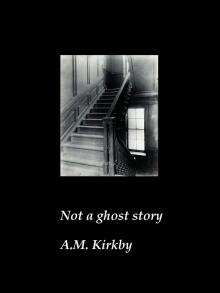 Not a Ghost Story
Not a Ghost Story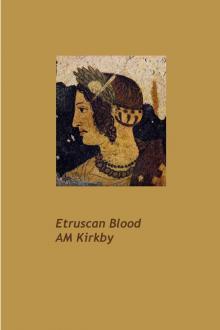 Etruscan Blood
Etruscan Blood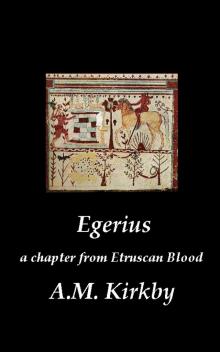 Egerius
Egerius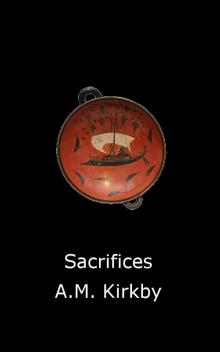 Sacrifices
Sacrifices The Tin Heart
The Tin Heart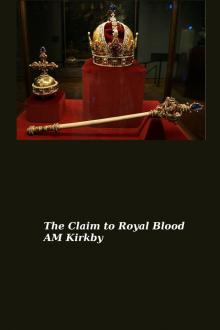 The Claim to Royal Blood
The Claim to Royal Blood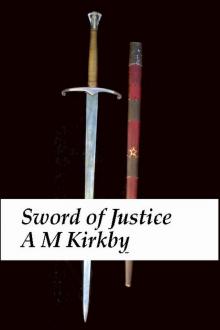 Sword of Justice
Sword of Justice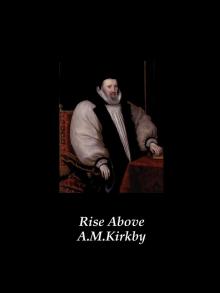 Rise Above
Rise Above